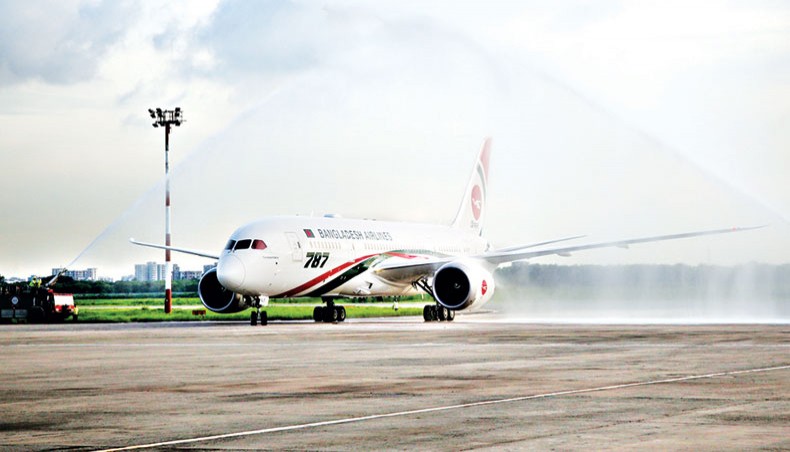Airlines in Bangladesh to get fewer frequency, traffic rights if fail to meet target
The government has framed a policy on allowing Bangladeshi air operators to run flights on international routes and distributing flight frequency to ensure efficient and the highest use of limited flight frequency and other air traffic rights.
Civil aviation and tourism ministry on Tuesday issued the gazette notification of the policy with a provision of reducing number of frequency and traffic rights in case of use of the frequency less than 50 per cent of total allotment for a specific route and cancellation of the allotment for complete failure of use.
The policy titled ‘permission for international flight operation, distribution of traffic rights and allocation of frequency to Bangladeshi air operators 2019’ came into effect immediately after gazette notification.
Officials said that the international flight frequency of a country should be managed efficiently as the number of flights (frequency), air operators and other issues related to air traffic rights, in many cases, remained limited based on the bilateral air transport or air services agreement.
The government loses revenue due to low use of the frequency while it could not allocate required frequency to other airlines if any operator fails to use allocated frequency in absence of a complete policy, they said.
According to the policy, the ministry will give permit, traffic rights and frequency for international flights for one year to an operator after meeting some criteria and conditions including having air operator certificate from Civil Aviation Authority of Bangladesh and conducting one year operation on domestic routes.
Frequency means the number of flights between two countries during a fixed period of time.
For example, there are weekly 120 flight frequency between Bangladesh and India.
Traffic rights means a set of rights including the right to fly across another country without landing, to land in another country for purposes other than carrying passengers such as re-fuelling or maintenance, to load and unload passengers and cargo in another country, to carry passengers to one country and then fly on to another country.
According to the policy, the applicant operator will have to two aircraft registered in Bangladesh on its fleet for passenger flight and one aircraft for operating cargo flight, the policy said.
International flights must be operated with aircraft having seating capacity of 30 or more.
The ministry will send a request through foreign ministry to the aeronautical authority of the destination country for giving approval the air operator for operating international flight.
Qualified airlines will have to apply to the ministry by the first week of April every year for getting route permits and frequency for operating flights in winter and summer schedules.
They will also have to provide their operation plan and demand along with the applications.
The ministry within May will distribute route permits, traffic rights and frequency for one year starting from winter schedule to be started from October and summer schedule started from March after analysing the operator’s operation plan and demand in presence of CAAB and operator.
The appointed operator will have to use the frequency and traffic rights within the two schedules.
The ministry will have right to lower the number of frequency for the operator if it uses the frequency below 50 per cent of allotment and the ministry will redistribute that to other operators.
The ministry will cancel the allocation of frequency if an operator completely fails to utilise the allocation, the policy said.
While allocating frequency and traffic rights, the ministry will consider the operation plan and demand of an applicant, success rate of the use of allocation in previous year, situation of other air operators, discipline and flight safety, number of aircrafts and financial ability.
Currently, CAAB allocates the flight frequency but could not ensure full use of frequency in absence of a comprehensive policy.
The government was trying to frame the policy since 2014 following litigation with a private airlines company which went to court to maintain its rights over allocated frequency despite suspension of operation.
News Courtesy: www.newagebd.net











